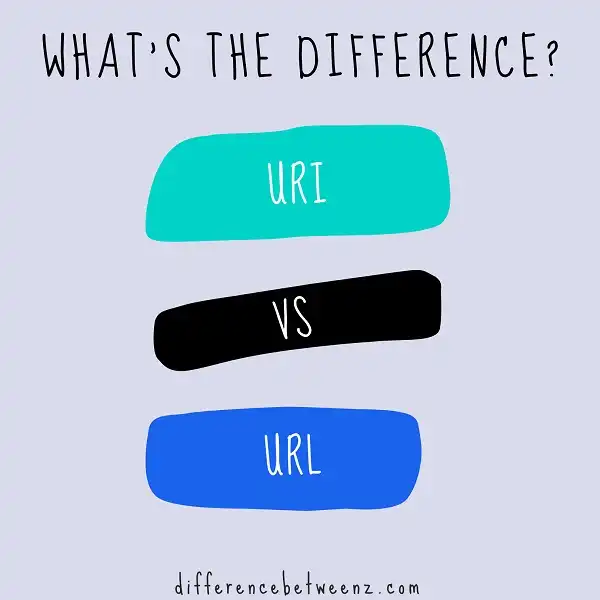Do you know the difference between a URI and a URL? Many people use the terms interchangeably, but they are actually quite different. A URI is simply an identifier for a resource, while a URL is the location of the resource. In other words, a URI tells you where to find something, while a URL tells you what it is. Understanding the difference between these two terms is important if you want to create effective web links. Let’s take a closer look at each one.
What is URI?
URI, or Uniform Resource Identifier, is a string of characters that identify a resource on the internet. The most common type of URI is the URL or Uniform Resource Locator. URLs are used to identify web pages, and they typically include the protocol (HTTP:// or HTTPS://), the domain name, and the path to the page (for example, www.example.com/path/to/page.html). URIs can also be used to identify other resources, such as email addresses ([email protected]), files (ftp://domain.com/path/to/file.txt), and even certain parts of a web page (http://www.example.com#section1). By specifying a URI, you can uniquely identify a resource on the internet so that it can be located and accessed by computers.
What is URL?
URL stands for Uniform Resource Locator, and it is the address of a specific resource on the internet. The resource can be an individual webpage, a file, or even a query to a database. A URL typically consists of four main parts: the protocol, the hostname, the path, and the query string. The protocol specifies how browsers should fetch resources from servers, while the hostname indicates which server should be contacted. The path points to a specific resource on the host server, and the query string contains any parameters that need to be passed to the server. When all of these parts are combined, they form a complete URL that can be used to access a particular resource on the internet.
Difference between URI and URL
URI (Uniform Resource Identifier) and URL (Uniform Resource Locator) are terms often used interchangeably, but there is a subtle difference between the two. A URI is a unique identifier for a resource, while a URL is a specific type of URI that identifies the location of a resource. In other words, all URLs are URIs, but not all URIs are URLs. For example, a website’s domain name (www.example.com) is a URI, but it does not identify the location of any specific resource on that website. On the other hand, a URL for an image on that website (www.example.com/images/image.jpg) would be both a URI and a URL, since it uniquely identifies the image and also specifies its location on the server. When discussing web resources, it is generally safe to use the term “URL” instead of “URI.” However, it is important to be aware of the distinction between the two terms in case you ever come across them in other contexts.
Conclusion
Although the terms URI and URL are often used interchangeably, they actually have different meanings. A URL is a specific type of URI that uses the HTTP or HTTPS protocol to identify a web page. When you enter a URL into your browser, it sends a request to the server where the web page is located and displays the contents of that page. A URI can be any type of identifier, not just a web page. It could be an IP address, file path, or email address. So when someone asks for your website’s URI, they may be asking for either the full URL or just the domain name.


